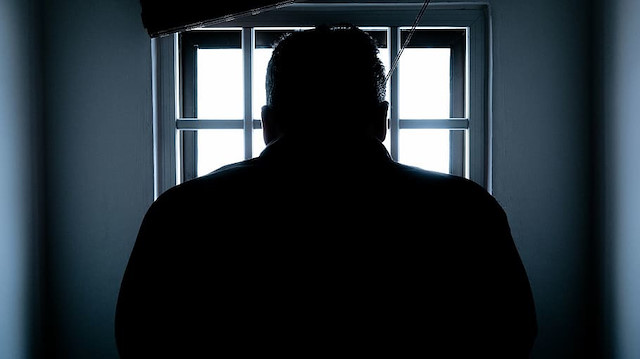
File photo
Restrictions imposed by Israeli prison authorities against the Palestinian detainees are worsening their conditions behind bars, a Palestinian official has warned.
Last week, the Palestinian Prisoner Society, an NGO, said prison canteens have stopped supplying detainees with 140 products, including cleaning items – a necessity at the time of the spread of the novel coronavirus around the world.
Prison authorities have also cancelled medical check-ups for prisoners, except for fever.
"The prison service still refuses to offer any protection or disinfection supplies to protect prisoners from coronavirus," said Qadri Abu Bakr, head of the Palestine Liberation Organization (PLO)'s Commission of Detainees and Ex-Detainees Affairs.
Last week, Palestinian prisoners began to refuse meals provided by the prison service as part of pressure on the prison authorities to abolish the restrictions.
Abu Bakr described the protest as a "warning message" by the prisoners in case Israeli prison authorities refuse to respond to their demands.
On Monday, Palestinian prisoners decided to resume their protesting measures against the Israeli Prison Service as of Tuesday.
According to the Palestinian Prisoners Society, the escalation will take place in the three prisons of Ofer, Negev, and Nafha, where hundreds of Palestinian prisoners are languishing.
"They may be forced to go on an open hunger strike to fulfill their demands," Abu Bakr told Anadolu Agency.
Israel has reported one death and more than 1400 confirmed cases from coronavirus.
According to Palestinian authorities, 5,000 Palestinians are currently held in Israeli detention facilities, including 43 women and 180 children, 700 patients, 200 of them are suffering from chronic diseases.
Crime
Abu Bakr described the Israeli restrictions as a "crime", calling for rallying efforts to pressure Israel to free Palestinian detainees amid the coronavirus outbreak.
"Vigorous efforts should be made to stop this crime and seriously seek to free the prisoners, especially sick prisoners, elderly, children, and women," he said.
"Israel's prison service told ICRC (International Committee of the Red Cross) that there are four prisoners are held in precautionary quarantine in Megiddo prison since last Thursday," he said.
Last week, the Palestinian Prisoner Society appealed to international organizations to intervene to pressure Israel to provide protective supplies to Palestinian detainees.
It also called on the ICRC to ensure continuous communication between prisoners and their families after Israel suspended visits to prisoners.
"Prisoners want telephones be reinstalled in their departments and to remove the jamming devices that threaten their health," Abu Bakr said.
Earlier this month, Israel's Justice Minister Amir Ohana declared a 24-hour “state of emergency” in Israel’s court system as part of its fight against coronavirus.
The decision means that courts can only sit for urgent hearings on arrest and remand orders, administrative detention orders, offenses under legislation “relating to the special emergency” and certain interim relief in civil matters.
Abu Bakr said families were told by the ICRC that all court sessions and transfer of prisoners between prisons have been canceled and visits stopped as a precautionary measure.
"These actions aren’t enough to protect the prisoners," he said. "Israel's prison service must take more real protective steps to avoid the outbreak of COVID-19."
Israel has taken several measures to stem the spread of the virus, including closing down cafes, restaurants, hotels, shopping malls, and entertainment venues.
Last week, Palestinian Prime Minister Mohammad Shtayyeh called on the Israeli government to immediately release the Palestinian prisoners languishing in its jails.
Shtayyeh asserted that the release should include child prisoners and those suffering from chronic diseases, number of whom stands at 200.
The coronavirus, officially known as COVID-19, first emerged in Wuhan, China last December and has spread to at least 167 countries and territories.
There are over 370,300 confirmed cases worldwide, with a death toll surpassing 16,700, while more than 98,800 have recovered, according to data compiled by U.S.-based Johns Hopkins University.
#Coronavirus
#Israel
#West Bank
4 years ago














